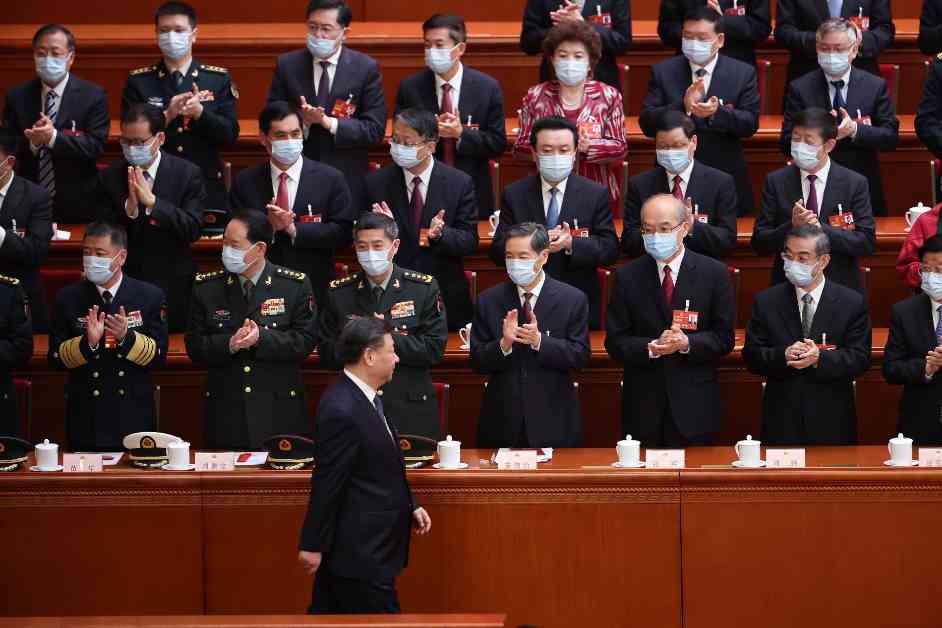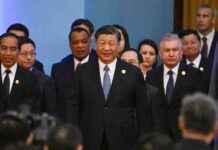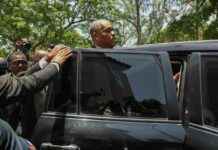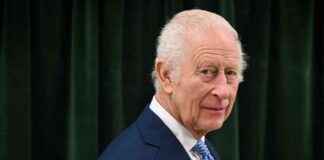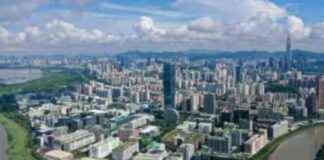Xi Jinping has been at the helm of China for over a decade, overseeing a period of significant change and challenges. As he enters his third term, the way he governs the country is evolving in response to a complex domestic and international landscape. From economic struggles to strategic competition with the United States and its allies, Xi Jinping’s leadership is being tested like never before.
### A Shifting Landscape: The Challenges Facing Xi Jinping
When Xi Jinping assumed office in 2012, China was on a trajectory of rapid economic growth and increasing global influence. However, the landscape has dramatically shifted in the past decade. The Chinese economy is facing challenges, confidence is wavering, and debt is looming large. At the same time, strategic competition with the United States and its allies is threatening China’s technological advancement and economic growth.
Many analysts have attempted to characterize Chinese politics in simplistic terms, either as a return to growth-oriented policies post-COVID or as a shift towards authoritarian control and geopolitical dominance. However, the reality is far more nuanced. Policymaking in China is becoming increasingly volatile as Beijing grapples with mounting challenges. This volatility is driven by three key balancing acts: balancing growth with security in economic policy, navigating diplomatic struggles with the U.S., and managing competition within elite political factions.
### Securitization of Economic Policy: A New Focus for Xi Jinping
One of the defining themes of Xi Jinping’s third term is the securitization of economic policy. In his report to the 20th Party Congress in October 2022, Xi emphasized the need for national security to permeate every aspect of governance. This shift towards a security-focused approach has significant implications for China’s economic future.
Xi Jinping’s focus on security is driven by a desire to reduce China’s economic and technological dependencies on the United States and its allies. In the face of what he sees as comprehensive containment and suppression by Western countries, Xi is pushing for greater self-reliance and innovation within China’s industrial system. This shift towards self-sufficiency is aimed at protecting China’s national security interests in an era of increasing geopolitical competition.
### Balancing Growth and Security: The Dilemma Facing Xi Jinping
While security concerns are taking center stage in Xi Jinping’s policymaking, economic growth remains a critical priority. Balancing growth and security has become a delicate tightrope for the Chinese leadership. Xi has directed authorities to strike a balance between development and security, signaling the importance of both objectives.
However, the securitization of economic policy is likely to lead to increased Party leadership and intervention in the Chinese economy. Recent years have seen ideological interventions in specific industries, such as restrictions on for-profit tutoring and video gaming. Going forward, the Party’s supervision of the economy is expected to expand, with a focus on aligning firms with policy objectives to advance national security goals.
### The Diplomatic Push: Xi Jinping’s Global Ambitions
In addition to domestic challenges, Xi Jinping is also facing a shifting international landscape. His diplomatic push to position China as a vital economic partner and a political champion of the developing world is aimed at countering Western hostility and bolstering China’s global influence. By promoting a multipolar international order and engaging in dialogue with Western leaders, Xi is seeking to improve global perceptions of China.
However, China’s diplomatic efforts are likely to exacerbate tensions with the United States and its allies. The momentum behind high-tech decoupling within the U.S. alliance system poses a significant challenge to China’s economic interests. As Western countries adopt policies to weaken China’s geo-economic power, Xi Jinping must navigate a complex geopolitical landscape while maintaining China’s economic growth trajectory.
### Elite Politics: Sub-Factional Rivalry in Xi’s Inner Circle
Behind the scenes of Xi Jinping’s leadership, a fierce competition is unfolding between sub-factions of officials aligned with the Chinese leader. These sub-factions, originating from different provinces and connected to Xi through various channels, are vying for influence within the Party. This sub-factional rivalry adds a layer of complexity to China’s elite politics, potentially hindering stable and predictable policymaking.
While Xi Jinping remains the decisive actor in personnel and policy decisions, the emergence of sub-factional rivalry within his inner circle poses challenges for governance and policy implementation. As different factions vie for power and influence, Xi must navigate internal tensions to maintain control over the Party and advance his policy goals.
### Conclusion
As Xi Jinping enters his third term, he faces a myriad of challenges both domestically and internationally. Balancing economic growth with security concerns, navigating diplomatic tensions with the West, and managing sub-factional rivalry within the Party present complex dilemmas for the Chinese leader. The outcome of this balancing act will shape China’s future trajectory, with implications for the country’s economic development, political stability, and global influence. In a rapidly evolving global landscape, Xi Jinping’s leadership will be put to the test as he seeks to steer China through a period of uncertainty and change.
